
Chinese Ambassador Intensifies Political Engagements: Three Key Priorities
Chinese Ambassador to Nepal, Chen Song is intensifying political engagements following the Chinese New Year holiday. The clandestine nature of these meetings has raised eyebrows, particularly as they involve high-profile political figures.
He held closed-door discussions with Prime Minister Pushpa Kamal Dahal ‘Prachanda’ on Monday morning, a meeting shrouded in secrecy as it was not disclosed to the public.
Similarly, Ambassador Song met CPN-UML Chairman KP Sharma Oli at his residence in Balkot.
He also met with Jhalanath Khanal, the leader of CPN United Socialists on Tuesday.
According to diplomatic analysts, there are three main reasons for Ambassador Song’s meetings. First, he is meeting communist leaders according to the agenda of the Chinese Communist Party.
The main purpose of his meetings is once again uniting communists in Nepal. The second is to address delays in Chinese projects running in Nepal and emphasize other projects. “He is under pressure due to the high-level meetings and arrivals from America in Nepal,” an analyst said. “It is an old tendency of the Chinese to blame America and India rather than address delays.”
Ambassador Song has mainly and consistently been seen defending the unity of the Communist Party and addressing the delay in the Nepali projects involving China since he assumed his role in Nepal.
A few months ago, Rabi Lamichhane, President of the Rashtriya Swatantra Party, embarked on a walk from Narayangadh to Butwal to protest the delay in the expansion project of the Butwal-Narayangadh section. However, the Chinese Embassy openly showed interest in this campaign of the RSP. There was a reason for this. A Chinese contractor company is working on that section. Due to pressure from the Chinese embassy, the RSP was forced to inform that it did not oppose the project involving Chinese contractors. Subsequently, the RSP also decided to launch a campaign questioning the performance of other projects involving Indian contractors.
Loan matter also a priority
According to sources, Ambassador Song has continuously raised the issue of Pokhara International Airport’s debt in his meetings with senior officials of the Nepalese government.
The Pokhara International Airport, funded by loans from China, finds itself mired in a complex web of debt and diplomatic tension. Recent developments have seen the Chinese Embassy in Nepal issuing a pointed diplomatic note to the Nepalese government, highlighting discrepancies in the project’s execution and loan utilization.
Amidst these developments, the Ministry of Tourism has initiated inquiries, urging the Nepal Civil Aviation Authority to furnish clarifications and assessments regarding the diplomatic notes received via the Ministry of Foreign Affairs and the Ministry of Finance.
At the heart of the matter lies the loan agreement inked between the Ministry of Finance and the China Export-Import Bank in March 2016, with a looming deadline set for May 31, 2024. However, according to the diplomatic note sent by the Chinese Embassy, it is mentioned that as of now, 15 percent of the amount stipulated in the agreement remains untaken. If the remaining amount is not disbursed, it will be automatically canceled after the end of the loan period.
Similarly, since the handover certificate was issued on 29 December 2022 and the defect notification period expired on 28 December 2023, the embassy has requested expediting the takeover process.
Embassy’s diplomatic note dated January 23, 2024, and the Ministry of Foreign Affairs’ letter dated January 29, 2024, were received by the Ministry of Tourism for review through the Ministry of Finance. Subsequently, the Ministry of Tourism instructed to provide the necessary details along with the opinion from the relevant authority as soon as possible.
During the construction of the airport, Pradeep Adhikari, the Director-General of Nepal Civil Aviation Authority, served as the project leader. Furthermore, logistical hurdles have impeded the airport’s functionality since its inauguration over a year ago, rendering it incapable of accommodating international flights. Meanwhile, the Abuse of Authority Investigation Commission has intensified its investigation into suspicions of irregularities during the airport’s construction.
The construction of this airport started on 2 August 2016 after the agreement between the government and the Chinese state-owned contractor CAMCE. To build the Pokhara airport, the government signed an agreement with China’s Exim Bank and took a loan of 1.37 billion Chinese yuan. No need to pay 25 percent interest on it. There is 2 percent interest on the remaining amount. This is an expensive interest rate. The interest on loans taken from international donor agencies is less than 1 percent. This loan has a grace period of 7 years and is to be repaid in a total of 20 years.
China Increasing Interference
China’s interference in Nepal’s internal affairs has escalated, raising eyebrows among analysts and officials alike. Previously known for its non-interference policy, China has taken a more active role, particularly in consolidating the Communist Party of Nepal (CPN).
Former Ambassador Hou Yanqi spearheaded efforts to unite various communist factions within Nepal, a move viewed as overt interference by many. Now, her successor, Ambassador Song, has continued these initiatives, signaling China’s sustained involvement in Nepali politics.
One of the key points of contention is China’s opposition to the American Millennium Challenge Corporation (MCC) project in Nepal, further exacerbating tensions between the two global powers.
Chinese officials visiting Nepal have not only focused on security matters but have also delved into domestic political issues, advocating for China’s interests and providing training to Nepali political parties.
While China’s security concerns are understandable, many experts argue that its meddling in Nepal’s internal affairs beyond security realms is unjustified and raises serious questions about sovereignty and autonomy. As China’s influence grows, the debate over foreign interference in Nepal is expected to intensify.
- China Warns U.S. Over Taiwan Military Aid, Accuses Washington of ‘Playing with Fire’
- 101st Birth Anniversary of Nepali Congress Founding Leader Krishna Prasad Bhattarai Commemorated
- Nepal’s Exports Rise by 16.5% in Five Months Amid Trade Deficit
- Cabinet Decisions: DIGs Singh and Bohara Promoted; Key Policy Changes Approved
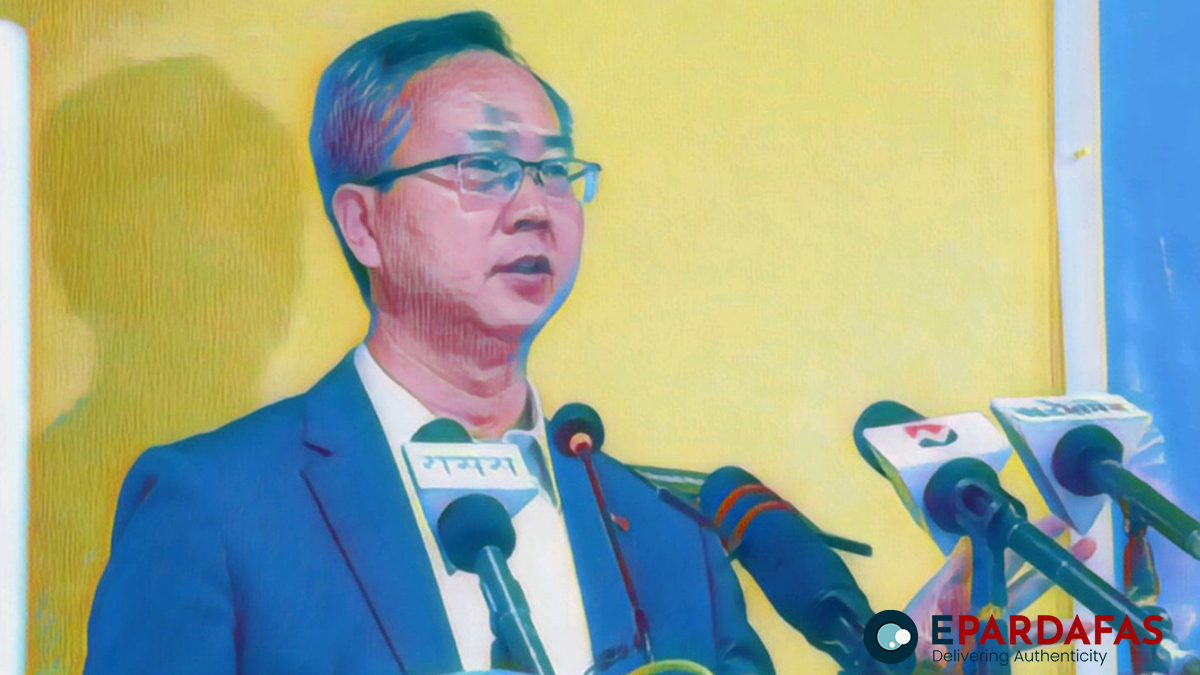
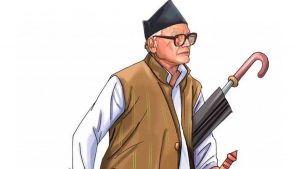
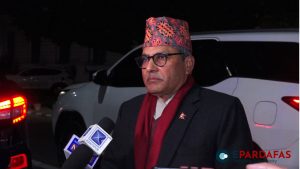

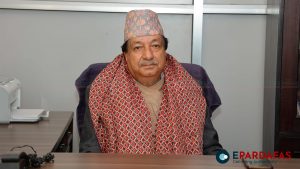
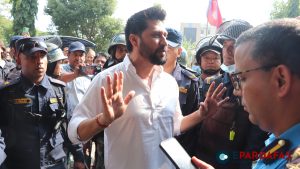
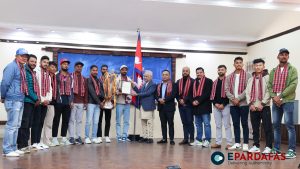






Comments